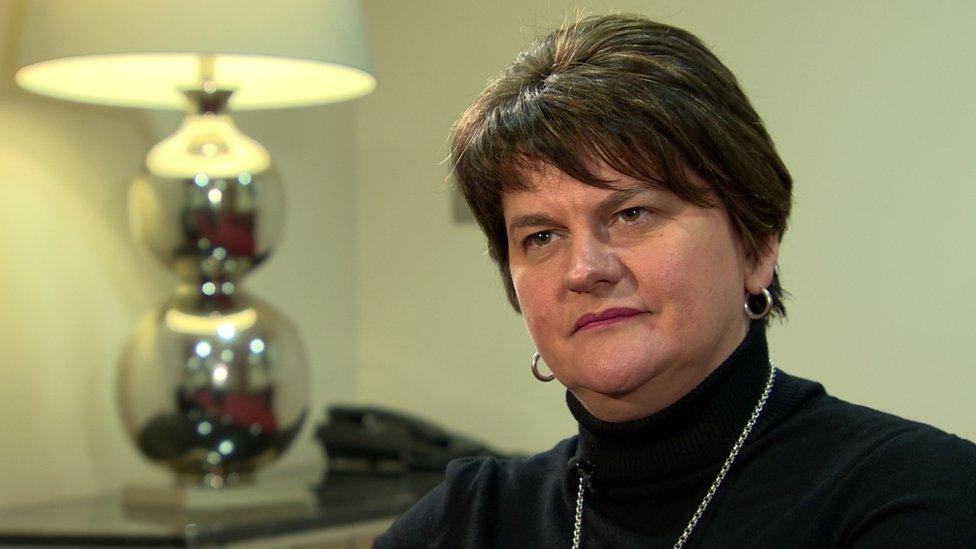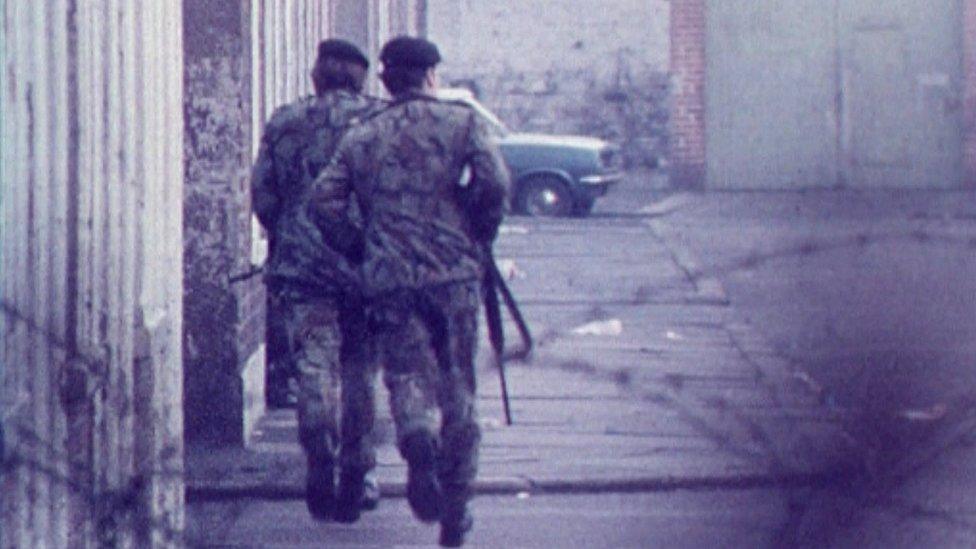Arlene Foster 'concerned' over security force amnesty
- Published

DUP leader Arlene Foster is worried that the Conservative Party proposal for an amnesty for members of security forces who served in Northern Ireland during the troubles, could lead to a wider amnesty for paramilitaries
DUP Leader Arlene Foster is "concerned" about a possible amnesty for police and soldiers for Troubles-related murders.
The government has added a question about the so-called "statute of limitations" to a consultation on the legacy of the Troubles.
Sinn Féin and the Irish government have objected to the inclusion of the proposal.
DUP leader Arlene Foster has told BBC News NI that the DUP "had not been pushing" for the amnesty.
'An act of bad faith'
The Commons Defence Committee has backed the introduction of such a bar on prosecutions after military veterans argued that it was unreasonable for charges to be brought against senior citizens dating back to the early days of the Troubles.
Arlene Foster 'concerned' over security force amnesty
Speaking to BBC Radio Ulster's lnside Politics Arlene Foster denied that the government's decision to canvass opinion on the idea was an example of the Northern Ireland Office adopting a biased approach in favour of her party.
Mrs Foster said there had been more pressure in favour of the move from Conservative back-benchers than from unionists.
She said: "There are a lot of Conservative back-benchers who have been expressing concerns about soldiers who served in Northern Ireland who are old men now, and being put under a lot of pressure."

Conservative and unionist MPs want a "statute of limitations" to prevent security force members being prosecuted for offences early in the Troubles
Although some DUP politicians, such as the East Belfast MP Gavin Robinson, have registered their support for the proposal, Mrs Foster said she personally had reservations.
The DUP leader said she understood the motivation behind the idea, but was concerned it could lead to a wider amnesty which might deprive Troubles victims of the chance of justice.
"We have to be very careful that you don't end up in a situation where you end up giving an amnesty, by the back door, to people who committed some of the most heinous crimes anywhere."
Sinn Féin has objected angrily to the extension of the legacy consultation to include the proposal.

Gerry Adams held talks with Theresa May on Tuesday
Gerry Adams described it as an act of bad faith.
The Irish Foreign Minister Simon Coveney has also argued that the move risks undermining the credibility of the planned consultation on the past.
- Published21 November 2017
